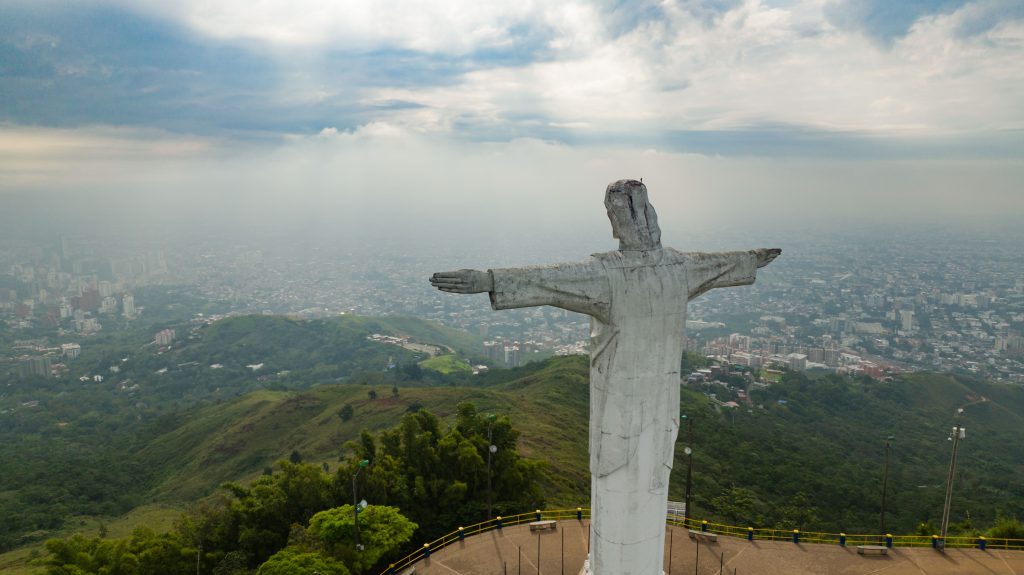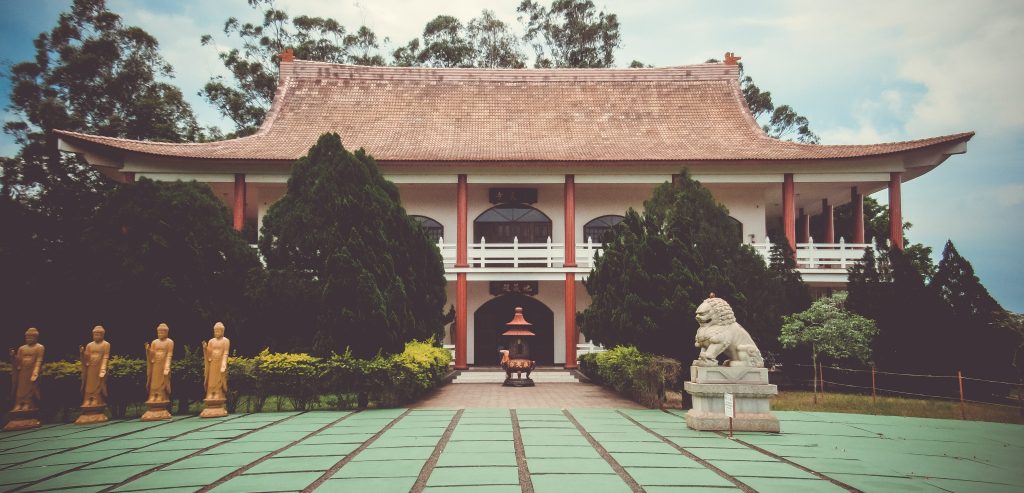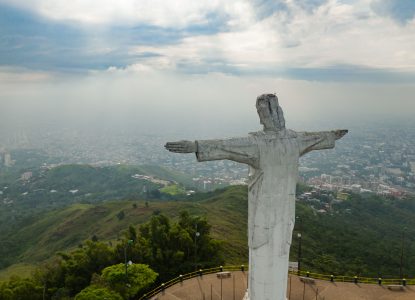By Prof. W. Cole Durham. Jr., President, G20 Interfaith Forum Association
–
On August 8-10, The International Center for Law and Religious Studies (ICLRS) and Centro Brasileiro de Estudos em Direito e Religião (CEDIRE) held a conference involving religious and civil society leaders from around the world entitled “Building Bridges, Breaking Barriers: The Role of Religious Freedom in Building a Free, Just, and Mutually Supportive Society. The conference, held in Brasilia, Brazil, was especially significant due to Brazil’s upcoming G20 Presidency in 2024. Several delegates from the G20 Interfaith Forum Association were in attendance. This three-part essay is taken directly from Prof. Durham’s keynote address at the symposium. Click the links to read Part 1 and Part 3.
– – –
The Deeper Challenges and the Deeper Answers that Religious Freedom Offers
Thus far I have been describing just the tip of the iceberg of recurring religious freedom challenges that we face around the world and have suffered time out of mind. The problems have a gravity and urgency that helps explain why there is such strong consensus on the importance of international religious freedom and the evils it is intended to remedy. Religious persecution is an incontestable evil and religious discrimination is like unto it. This is why it has been possible over the past few years to get 42 countries to join the International Religious Freedom or Belief Alliance. This is why it is possible to galvanize support year after year among a legion of NGOs to combat the worst religious freedom abuses. It is of course easier to draw attention to the problems that are evident elsewhere in the world than to work out solutions to the problems simmering in one’s own backyard. But it is worth emphasizing at the outset just how grave and pervasive the problems are.
What I would like to do in the remainder of my time, however, is not to focus on the immensity and intensity of the challenges posed by religious freedom issues, but to examine instead why the principle of religious freedom is such a vital solution. I often point out that religious freedom is the oldest of the internationally recognized human rights, tracing its history back to at least the Peace of Augsburg in 1555 and the Peace of Westphalia in 1648. I call it the grandparent of human rights, because other rights such as freedom of expression, freedom of association, equality and non-discrimination rights were all worked out first in the context of deep religious tensions. Often in our day I have to lament that it is not only the grandparent of human rights, but an unfortunately neglected grandparent as well. But if one penetrates beneath the surface of the shifting faces of social conflict that have unfolded over centuries, it is much more than a mere progenitor of other rights.
Religious freedom is modernity’s master key to solving the riddle of how to achieve stable peace in a world of deep differences.
It is not just that we have an urgent set of religion-related problems that need to be solved; it is that we need the principle of religious freedom to solve the underlying problem. Within the interlocking network of human rights, the fundamental right to freedom of religion or belief plays a particularly significant, but often forgotten or underestimated role. But its importance is forgotten at our peril.

My aim in what follows is to argue that freedom of religion or belief provides the fundamental underlying social and political architecture that is vital for achieving a free, just, and sustainable mutually supportive society. The argument in brief is that the ideal of human dignity, which includes freedom of thought, conscience, and religion, is critical to stabilizing just social orders, and as such is critical to just peace at all levels—global, national, local, family, and individual relations. [1]
Parenthetically, it is worth noting that this argument is clearly not intended as a species of neo-colonial argumentation, intending to impose an outside point of view. Rather, it is intended to invite you into a world in which we live together, with differences, with the ability to learn from each other, and thereby come to a better understanding of the ways that the dignity of difference and the dignity of understanding can be brought together. What I hope to be able to explain is why you and others in this part of the world would be able to elaborate further why freedom of religion or belief is fundamental to the social and political architecture that we common inhabitants of this world are building, and that we may be able to think together about some distinctive and perhaps non-obvious features of the architecture.
In many ways, the brief statement of my argument is simply a restatement of a time-tested axiom of modern pluralist societies. But this axiom is paradoxical in key respects. It entails requiring members of society to respect the right of others to hold beliefs that may be deeply different from their own. This in turn means that social structures cannot be based on specific sets of commonly held values, except the reciprocally recognized right for different groups and individuals (subject to only strictly limited restrictions) to choose and act on their own values. For this reason, the canons of freedom of religion or belief often seem counterintuitive at the level of ordinary politics where differing values are often at the heart of conflicts—conflicts that often seem particularly incendiary.
Freedom of Religion or Belief and the Minimum Conditions of Social Peace
During much of human history, religion has been viewed as a major source of social tensions and divisiveness. Because religious differences are deep and nonnegotiable, they lead to intractable conflicts that have littered the pages of history. While there is some truth to this account, recent scholarship suggests that this picture overstates the dark side of religion. [2] Close analysis of conflicts that involve religious actors often demonstrates that it is not religion itself that causes conflicts, but a variety of other factors.[3] Violence in the name of religion may reflect the instrumentalization of religion by other social actors. This is not to claim that religion is never responsible for violence and conflict. It is simply a reminder that great care should be taken in attributing blame.
With that caveat in mind, the starting point for excavating the minimum conditions for social peace is an insight associated with the thought of John Locke. Where much of prior political theory had assumed that social stability presupposed religious homogeneity, Locke recognized that it is not so much religious difference that causes conflict, but pressures to coerce religious homogeneity. Stated differently, Locke recognized that the real source of violence perpetrated in the name of religion is not religious difference itself, but defensive conduct when conscientious convictions are threatened by efforts to coerce social monism.[4] This fundamental Lockean insight was revolutionary when first pronounced and remained experimental when first introduced as a principle of social order in American constitutionalism.
The insight has been refined in various ways through subsequent experience.
- First, we now have much better empirical evidence that religious freedom is strongly correlated with and likely to be causally contributory to achievement of countless other social goods.[5]
- Second, experience has shown us that a far more robust version of pluralism is workable than what Locke originally proposed. In his view, the private judgement of a person “does not take away the obligation of that law, nor deserve a dispensation.”[6] This issue—whether neutral and general laws should override claims of conscience—remains one of the central controversies of modern constitutional theory.[7] While debate continues, legal regimes sensitive to the problem have recognized that both the intrinsic justice and the stability-strengthening potential of religious freedom are enhanced if the law is construed to avoid conscientious conflict, except where there is a compelling need that cannot be achieved in some less restrictive way.[8]
- Third, Locke was right that there are limits to what needs to be tolerated in a free society, but most would disagree Locke’s judgment that Catholics, Muslims, atheists, and perhaps Jews were too intolerant to be tolerated. Our notion is that this line needs to be drawn in a far more limited way to exclude those who would exploit democracy to abolish it.[9] There is substantial room in stable societies for people with deeply different worldviews.
- Fourth, we would not necessarily draw the line between religious and secular in a way that would confine religion wholly to the private sphere. What is critical is an inclusive and flexible form of secularity that confers no distinctive coercive power on either religious or secular world views, but rather affords inclusive recognition of the dignity of all.

The minimum conditions necessary for a stable peace can thus be much more narrowly defined than was first intimated by Locke’s insight. It is not cultural homogeneity that is critical, and not even tolerance as Locke understood it, but a much narrower pluralistic commitment that can be articulated as follows:
What counts is not whether religious people appreciate other beliefs and practices or whether they admit of alternative paths to salvation. What really matters is whether each, on sound internal grounds, supports the public doctrine of the equal inherent dignity and inalienable freedom of all human beings, irrespective of their religion, life stance, or any other differences, and that each reasonably understands or else trusts that others similarly support general freedom of religion or belief.”[10]
Note that in the end, what is really required for social peace at the core of the Lockean insight, as adapted and refined over ensuing centuries, is a shared commitment to equal human dignity safeguarded by strong protection of freedom of religion or belief. This commitment needs to be sufficiently robust that it can give rise to reciprocal trust that human dignity (as variously understood by those holding differing worldviews and life-stances) will be protected.
The ideal of dignity as envisioned here needs to be understood more dynamically than as a mere static starting point for moral deductions. It has generative power in discourse that has the potential to expand vision and raise sights. It has an inherent reciprocity, that encourages those on one side of a moral argument to take the dignity of others into account. Moreover, it is a discursive concept with an upward trajectory. It typically serves as a basis for generating agreement and building common understanding—building consensus on a higher plane than might have been reached without the appeal to dignity.
–
– – –
Cole Durham, Jr., is the President of the G20 Interfaith Forum Association, the immediate past President of the International Consortium for Law and Religion Studies(ICLARS), and Susa Young Gates University Professor of Law and Founding Director of the International Center for Law and Religion Studies (ICLRS), at the J. Reuben Clark Law School of Brigham Young University. He is a graduate of Harvard College and Harvard Law School, and is a founding Editor-in-Chief of the Oxford Journal of Law and Religion.
–
[1] The argument made here is in some ways an elaboration and expansion of the argument of an earlier article written by Elizabeth Clark and myself. W. Cole Durham, Jr. and Elizabeth A. Clark, ‘The Place of Religious Freedom in the Structure of Peacebuilding,” in Atalia Omer, R. Scott Appleby, and David Little, eds., The Oxford Handbook of Religion, Conflict, and Peacebuilding (Oxford: Oxford University Press, 2015).
[2] William T. Cavenaugh, The Myte of Religious Violence: Secular Ideology and the Roots of Modern Conflict (Oxford: Oxford University Press, 2009).
[3] See, e.g., Gerald F. Powers, ‘Religion and Peacebuilding.’ in Daniel Philpott and Gerard F. Powers, eds., Strategies of Peace: Transforming Conflict in a Violent World (Oxford: oxford University Press, 2010), at 319-20; Monica Duffy Toft, ‘Religion, Terrorism, and Civil Wars,’ in Timothy Samuel Shah, Alfred Stepan, and Monica Duffy Toft (Oxford: oxford University Press, 2012), 138-42.
[4] See John Locke, A Letter Concerning Toleration (1689, cited edition: Indianapolis: Bobbs-Merrill, 1955), 55.
[5] See, e.g., Brian J. Grim and Roger Finke, The Price of Freedom Denied: Religious Persecution and Conflict in the Twenty-First Century (Cambridge: Cambridge University Press, 2011), 215-222.
[6] Locke, A Letter Concerning Toleration, 50.
[7] The question whether Employment Division v. Smith, 494 U.S. 872 (1990), should be overruled is the continuation of this story in American jurisprudence. The U.S. Supreme Court in Fulton v. City of Philadelphia, 141 S.Ct. 1868 (2021) has eroded to the vanishing point the holding in Smith that general or neutral laws could suffice to overrule a free exercise claim. The European Court of Human Rights has insisted on a more careful and proportionality-attuned balancing in addressing this issue.
[8] Significantly, relatively few of the individual states of the United States have followed the Smith precedent as a matter of state constitutional law. See W. Bassett, et al., Religious Organizations and the Law § 3.26 (Thomson Reuters 2021); Alec Stone Sweet and Jud Mathews, ‘Proportionality Balancing and Global Constitutionalism,’ Colum. J. Transnat’l L. 73-74 (2008)(proportionality balancing analysis has been adopted in most jurisdictions outside the United States).
[9] Andras Sajo and Renata Uitz, The Constitution of Freedom: An Introduction to Legal Constitutionalism 9-10, 433-38 (Oxford: Oxford University Press, 2017) (addressing militant democracy).
[10] Tore Lindholm, ‘Philosophical and Religious Justifications of Freedom of Religion or Belief,’ in Tore Lindholm, W. Cole Durham, Jr. and Bahia G. Tahzib-Lie (eds.), Facilitating Freedom of Religion or Belief: A Deskbook (Netherlands: Koninklijke Brill NV, 2004), at 46.


